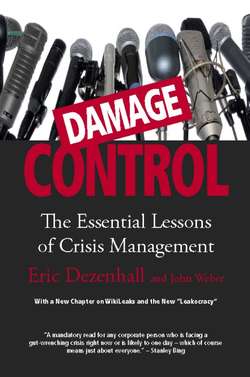Читать книгу Damage Control (Revised & Updated) - Eric Dezenhall - Страница 18
На сайте Литреса книга снята с продажи.
IN PRAISE OF BLAME?
ОглавлениеBlame exists for a reason: It’s useful.
“The human impulse to blame grows out of the evolutionary need to avert harm,” observed Ohio University professor Mark Alicke. In other words, we are hardwired to single out those who may pose a danger to the rest of us, whether deserved or not. Blame employs shame as a punishment to those who are perceived to have failed to serve the community at large; it is a cultural survival mechanism.
Our rational selves understand, for example, that one man should not be blamed for a hurricane, but that’s very much what happened to Federal Emergency Management Agency chief Michael Brown in the aftermath of Hurricane Katrina. As Brown became the personification of bureaucratic negligence, President Bush apologized to the nation for the government’s poor response, then accelerated aid to the devastated region—one good thing that sprung from blame in this instance.
There’s something “in” blame for everybody. Blame is essentially a service to the community. Blame punishes the few in the best interests of the many. It allows a selected scapegoat to bear the brunt of punishment so that the rest of us can smugly proceed with our lives.
When the opportunity to blame isn’t present, a potentially difficult situation may stay at the nuisance or problem level. When the potential for blame is high, the situation is more likely to erupt into a crisis or marketplace assault.
It’s therefore a waste of precious resources to attempt to enlighten an enraged population about cause-and-effect or other fine points when they are in an emotional uproar. Human beings understand the world in terms of archetypal narratives—stories with clear villains and victims and vindicators—and effective crisis management must accept that.
